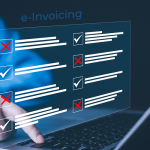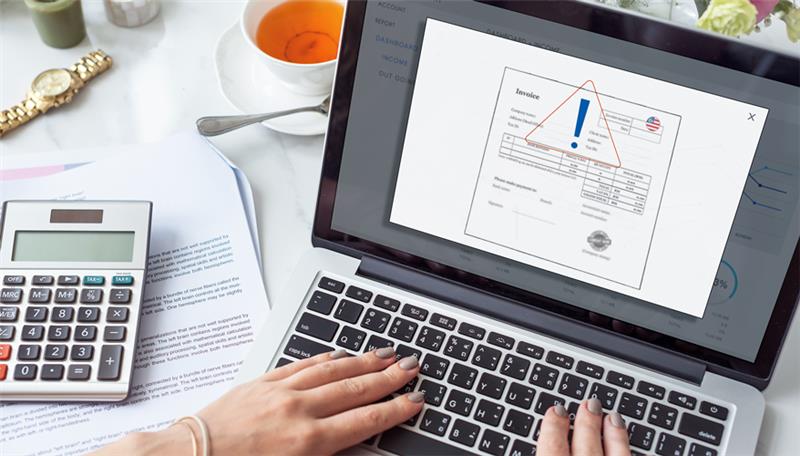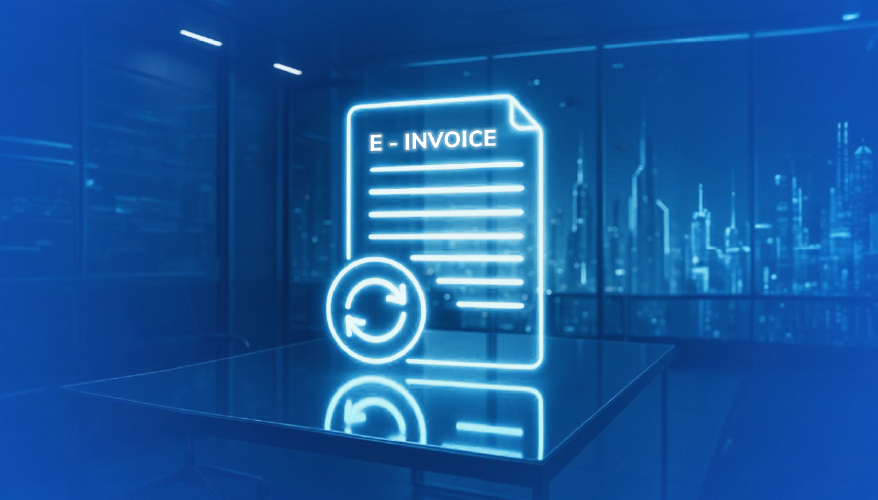
How to generate Malaysia e-Invoice through API model?
October 22, 2024
Common e-Invoicing Mistakes to Avoid for Businesses in Malaysia
January 21, 2025Rejection & Cancellation of e-Invoice in Malaysia: Reasons, Process, How to Avoid

The implementation of E-Invoicing in Malaysia marks a significant transition toward automated tax compliance. However, the LHDN has also introduced invoice rejection and cancellation workflow for Malaysian taxpayers, which can lead to issues such as operational delays and financial implications. Understanding the overall process, potential challenges, and their root causes is essential for seamless integration of e-invoicing into your current business processes and implementation of the new system/solution.
Read: E-Invoicing in Malaysia: Everything you need to know
Read: E-Invoicing in Malaysia: Everything you need to know
Key Reasons for Rejections for E-Invoice in Malaysia
- Data Inaccuracy: Incorrect or incomplete information, such as Tax Identification Numbers (TIN), invoice dates, transaction values, etc. often cause e-invoice rejection.
- Format Non-compliance: Submissions that do not meet the required XML or JSON formats are likely to be rejected.
- Duplicate Submission: Submitting the same invoice multiple times without corrections results in duplication errors.
- Invalid Buyer Information: Errors in buyer details, including incorrect TIN or mismatches with the IRBM database, can lead to rejections.
- Non-adherence to Tax Rules: Misclassification of goods or services and errors in tax calculations violate Malaysia’s SST framework, leading to rejections.
Common Causes for Cancellation
- Incorrect Transactions: Cancellations are typically initiated when there are mistakes in transactional details post-approval. Errors such as incorrect quantities, prices, or descriptions necessitate this action.
- Return or Reversal of Goods: Situations such as product returns, disputes, or voided sales often require invoice cancellation to maintain accurate records.
- Fraudulent Activity: Instances of potential fraud or unintentional duplications may compel businesses to cancel e-invoices as a precautionary measure.
- Buyer Rejection: E-invoices in Malaysia need buyer acceptance to be valid. If a buyer disputes the invoice or fails to acknowledge it, the invoice may require cancellation.
Process for Rejection or Cancellation of E-Invoices
Buyer’s Request for Rejection:
- Buyers have 72 hours from the time of validation to request rejection of an e-invoice if errors are identified.
- The request must specify the reason for rejection.
- Upon the buyer’s request, a notification is sent to the supplier for acknowledgment.
- If the supplier agrees with the buyer’s reasoning, they can proceed to cancel the e-invoice.
Supplier’s Cancellation of E-Invoice:
- Suppliers can cancel e-invoices with errors within 72 hours of validation.
- Cancellation requests must include valid justifications for the errors.
How to Avoid Rejection and Cancellation of E-Invoice in Malaysia
- Automated Validation Tools: Leveraging software tools (ex: IRIS MyeInvois) with comprehensive validation capabilities that help transform data from various source systems into the prescribed format, significantly reducing the risk of rejection through automated pre-validation can significantly reduce errors, ensuring compliance with IRBM requirements.
- Regular Data Audits: Routine checks for data accuracy and consistency across all invoicing fields help mitigate the risks of rejection.
- Training and Onboarding: Comprehensive training for teams and stakeholders on e-invoice requirements ensures smoother transition and reduces manual errors.
- Integrating Advanced APIs: Businesses can adopt Application Programming Interfaces (APIs) to streamline the invoicing process, reduce duplication, and enhance compatibility with the IRBM portal.
- Communication with Buyers: Ensuring that all buyer details are correct and maintaining clear communication about invoice terms can prevent disputes and cancellations.
- Choosing the Right E-Invoicing Partner: Companies can partner with E-Invoicing solution provider like IRIS MyeInvois to simplify their compliance journey in Malaysia. IRIS MyeInvois is a reliable solution that bridges the gap between your existing ERP or POS systems and the LHDN MyInvois platform, ensuring seamless integration and efficient management of your invoicing processes. With robust features and comprehensive support, it helps businesses stay compliant and streamline operations effortlessly.
Conclusion
Navigating the E-Invoicing system in Malaysia requires careful attention to detail to avoid rejections and cancellations. By addressing common causes such as data inaccuracies, format compliance, and buyer-supplier collaboration, businesses can ensure smoother compliance and operational efficiency. Leveraging technology and adopting best practices will be critical as E-Invoicing continues to evolve in Malaysia.How IRIS MyeInvois can help you with E-Invoicing?
IRIS MyeInvois is a one-stop e-invoice management solution for all business e-Invoicing needs. The solution is designed to help businesses with streamlining the invoicing processes, without the hassle of massive changes to the current system setup. The IRIS MyeInvois solution seamlessly integrates with any ERP/billing system using APIs or SFTP to minimize disruptions, prepare e-invoices, share e-invoices, manage notifications, and maintain compliance with government mandates. Users can also choose to go for bulk-uploads (.csv or .json) on the portal and use the inbuilt transformation tool to convert invoice data from their format to LHDN format (.xml or .json), pre-validate the data before submission, or calculate missing values. Additionally, users do not have to worry about the throttling or submission related limitations set by LHDN on the MyInvois portal. The users can further choose to raise Manual e-Invoices on the IRIS MyeInvois portal, if needed. The businesses can also add multiple entities (TINs), Point of Business, and Users under the same umbrella subscription and work according to the organizational hierarchy with multiple levels of user management and secure access to the portal for all registered users under the full organization, selected business entities, or selected branches (PoBs), based on their roles and responsibilities. IRIS MyeInvois is also PEPPOL-ready and hence, it provides a future-proof way for businesses to benefit from the digitization of invoicing and share invoices internationally using the PEPPOL network. Businesses can also instantaneously share documents to all customers/vendors through the e-mail feature on IRIS MyeInvois portal, regardless of their availability on IRIS MyeInvois, the PEPPOL network, or consideration under e-Invoicing mandates.Start Now
Additionally, users can invite guests with view-only access to e-invoices on the
platform, manage seller side/recipient side activities with the same account,
and much more.
platform, manage seller side/recipient side activities with the same account,
and much more.




